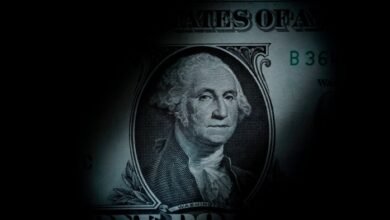
Unlock the White House Watch newsletter for free
Your guide to what the 2024 US election means for Washington and the world
Northern Ireland risks becoming “collateral damage” in President Donald Trump’s trade wars despite the UK being hit with a lower tariff than the EU, politicians and business leaders have warned.
The prospect of a transatlantic trade battle has reignited Brexit tensions in the UK region because of the potential for Northern Ireland to be caught in the crossfire if the EU imposes counter-tariffs on US goods.
Trump on Wednesday slapped a 10 per cent tariff on imports of goods from the UK and a 20 per cent levy on the EU, a decision that puts Northern Irish exporters at an advantage to rivals in the Republic of Ireland.
But if the EU hits back at Washington with duties of its own on US goods, Northern Ireland could face the higher EU rate on any US imports entering from Britain under the post-Brexit trade deal between the UK and EU. This would occur even if the UK did not retaliate.
“Northern Ireland remains exposed to potential EU retaliation and local businesses must not become collateral damage,” Gavin Robinson, leader of the region’s biggest pro-UK party, the Democratic Unionist Party, wrote on social media site X.
“The [UK] government must take urgent steps to protect Northern Ireland’s interests and ensure our place in the UK internal market is fully safeguarded,” he said.
The DUP boycotted Northern Ireland’s political institutions for two years over the Brexit trade rules before the executive and assembly were restored in February last year.
Speaking in the House of Commons on Wednesday, UK Prime Minister Sir Keir Starmer called the issue “very serious” and said “the interests of Northern Ireland are at the forefront of our decisions”.
Brexit left Northern Ireland inside the EU’s single market for goods. Under the Windsor framework post-Brexit trade deal agreed in 2023, goods from Britain enter the region under a so-called “green lane” with no customs checks if they are staying in Northern Ireland.
Any goods at risk of crossing the border into the EU must go through a “red lane” with customs controls.
If the EU applies counter-tariffs as a trade defence mechanism designed to level the playing field, the Windsor framework would automatically require US goods entering the region to use the red lane and be subject to the 20 per cent EU tariff rate, experts say.
“We will have to see how nuanced things are,” said Nichola Mallon, head of trade and devolved policy at Logistics UK. But she expected to see “an increasing number of goods that will not qualify for the green lane”.
Roger Pollen, head of the Federation of Small Businesses in Northern Ireland, has urged the European Commission to spare the region by retaliating against US services rather than goods, as services are not covered by the Windsor framework.
“We have written to the EU to urge them — if they’re going to respond with tariffs — to use [that] mechanism so that Northern Ireland isn’t inadvertently caught up in the middle of a three-way tariff dispute.”
If Northern Irish importers were liable for EU counter-tariffs they could seek to reclaim the duties “if they can prove it stayed in the UK”, said Carol Lynch, customs and international trade services partner at consultancy BDO.
“But it is difficult to get refunds at the best of times. This is going to get really complicated.”
https://www.ft.com/__origami/service/image/v2/images/raw/https%3A%2F%2Fd1e00ek4ebabms.cloudfront.net%2Fproduction%2Fe5ed580b-86ab-47e8-9f4d-97cc429114af.jpg?source=next-article&fit=scale-down&quality=highest&width=700&dpr=1
2025-04-03 03:55:52




